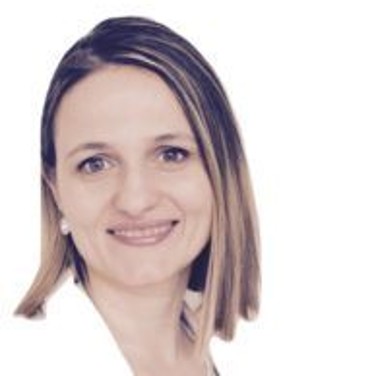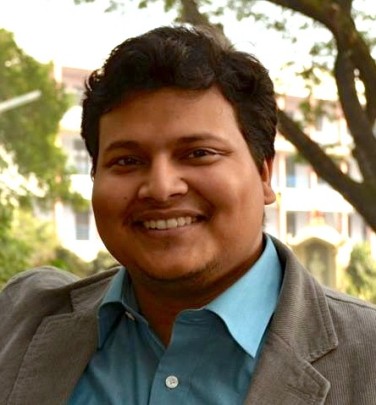First SOS Workshop “Self-organization in space and time”
Date: Friday, December 2, 2022
Location: S3|06, 146 and Self-Organizing Systems 2nd floor
The workshop will bring together researchers from computational modelling and experimental biological research. It will shed light on self-organising principles acting on the microscopic and macroscopic scale and on the utilisation of computational techniques such as machine learning for uncovering those principles. Invited talks will feature interdisciplinary research at the cross-road of molecular biology and applied mathematics.
The workshop is open to all researchers and students interested in the intersection between biology and computational analysis. Please send an email to office@bcs.tu-darmstadt.de if you want to participate in the workshop.
| 2:00 pm |
Get Together in room 146 in Hans-Busch-Institut, Merckstrasse 25, room 146 Heinz Köppl: Welcome and Introduction |
|
2:15 pm |
Dr. Christoph Zechner, Max-Planck-Institute of Molecular Cell Biology and Genetics, Dresden, Germany Title: Control of cellular noise by subcellular compartments Abstract: Chemical reactions serve as basic units for cellular information processing and control. However, reactions in cells are noisy, leading to substantial variability in the molecular constitution of genetically identical cells. How cells deal with such noise has been important question in quantitative biology. In the first part of this talk, I will discuss how the mesoscale organization of molecules into phase separated compartments can be used by cells to suppress cellular noise. Using a simple theoretical model that links dynamic concentration fluctuations to the physics of phase coexistence, I will show that concentration fluctuations can be significantly attenuated in the presence of phase separated compartments. I will present experimental single-cell data from synthetic and endogenous systems supporting this prediction. Later in my presentation, I will present some ongoing theoretical work, where we use concepts from control- and information theory to study the emergent dynamical properties of phase separated systems. |
| 2:55 pm |
Prof. Tatjana Petrov, University of Konstanz, Germany Title: Formal Modelling of Biologically-inspired Complex Self-Organising Systems Abstract: Uncovering the mechanisms of complex systems such as a biological cell or a colony of honeybees seems closer than ever with today's measurement and tracking technology, powerful computers and algorithms. However, the arising combination of combinatorial and analytical complexity requires novel methods at all modelling stages, including model representation, model reduction, model validation. If there is something more complex than biology, that is software. Billions of lines of code are written and executed daily, including those controlling the cars we drive or medical treatments we may need. By following the analogy that “model = programme”, the modelling principles used in software verification help us shed light to collective phenomena in biology. We exemplify the approach over several scenarios, including a recent result where extracting individual characteristics from population data reveals a negative social effect during honeybee defence. |
| 3:35 pm |
Coffee break in the foyer in front of room 250 |
| 4:00 pm |
Prof. Wasiur Khuda Bukhsh, School of Mathematical Sciences, University of Nottingham, UK Title: Multiscale approximations in chemical reaction networks Abstract: The talk will focus on a particular area of applied mathematics studying chemical reaction networks (CRNs) that describe creation, annihilation, combination or binding, and changes in the physical state of a collection of chemical species. Many prominent examples of intracellular dynamics, genetic switches, and dynamics of population interactions can be modelled by CRNs, where the interacting particles exhibit vastly different intrinsic scales in terms of abundance, or the reactions operate at different time scales varying over many orders of magnitude. The traditional deterministic approach to multiscale approximations used in such situations employs singular perturbation theory, often invoking Tikhonov’s theorem and Fenichel theory. In this talk, I will take a stochastic viewpoint and introduce, with the help of a number of examples, a probabilistic technique to derive multiscale approximations. The talk will be fairly nontechnical, and no prior knowledge biology is required. |
| 4:40 pm |
Dr. Francois Lehr, Max Planck Institute for Terrestrial Microbiology, Marburg, Germany Title: Production and assembly of bacteriophages and virus-like particles in cell-free systems Abstract: Viruses and virus-like particles are fascinating multi-protein structures capable of self-assembly. Their bottom-up construction in cell-free transcription-translation (TXTL) reactions provides new possibilities to understand their fundamental mechanisms better and offer new means of production for promising therapeutics. First, we will show how TXTL systems were used to study the effect of simulated microgravity on the synthesis and assembly of the model bacteriophage T7. Using various quantitative methods, we determined that simulated microgravity did not alter protein expression and DNA replication but enhanced the self-assembly of phage structures. Second, we used TXTL systems to investigate the production of uncharacterized virus-like particles. We demonstrated their successful synthesis using proteomics by detecting up to 94% of the phage-like proteins. Finally, we will discuss the implications of synthesizing self-organized protein structures for establishing novel biotechnological tools. |
| 5:10 pm |
Dr. Dominik Linzner, BASF, Ludwigshafen, Germany Title: (ML) Challenges in the Wild |
| 5:40 pm |
Labtour Visit of the SOS lab rooms on second and first floor in S3|06 |
| 6:00 pm | Closing and get together in the foyer in front of room 250 |







